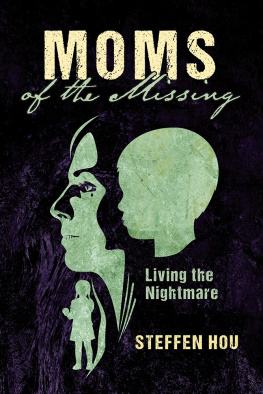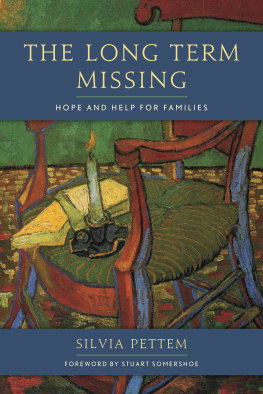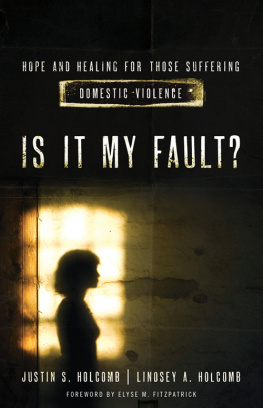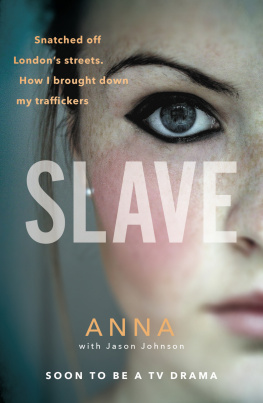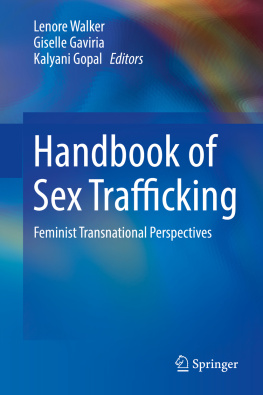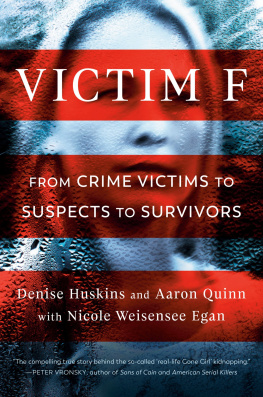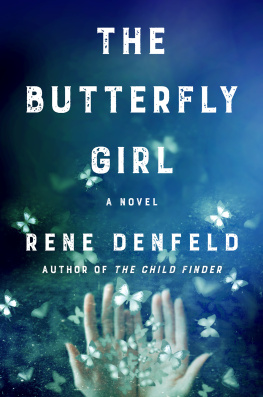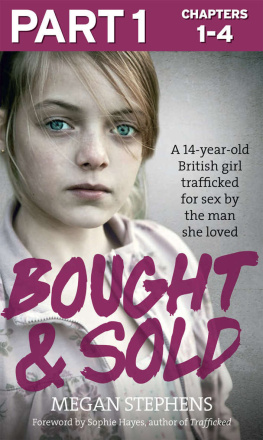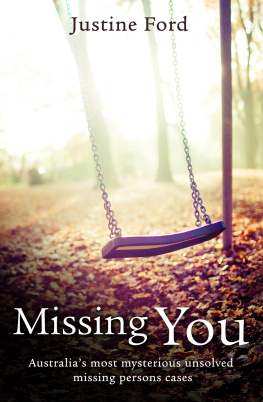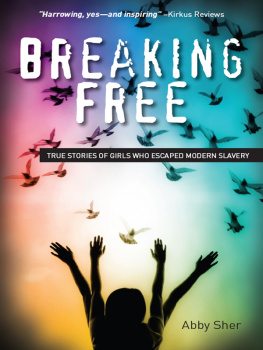This book is written in loving memory of all the children who have lost their lives at the hands of a vicious kidnapper, and is dedicated to those who are still held captive. Perhaps someone reading this book will remember a small but important detail about one of the abductions described in these pages and will come forward with new information that will lead to the safe recovery of one of the missing.
PROLOGUE:
A VOICE FOR THE VICTIMS
BLOK
T he man approached without making a sound, and I did not notice him until it was too late.
Quickly, he put me in a choke hold, grabbing my neck, and pressed the gun against my temple.
Walk, he commanded in a menacing voice.
As he forced me down the dirt road with a firm grip around my neck, I slowly realised what was happening. I was being taken by a stranger.
The incident happened in Blok 70. A part of the Serbian capital of Belgrade where human traffickers forced illegal immigrants into involuntary labour before transporting them over the borders into the European Union. The year was 2001. The civil war in the Balkans had just ended, leaving the region in chaos, without law and order. The Serbian capital was a mecca for criminals; human traffickers took advantage of the lawless situation.
I had been investigating human trafficking in the area for a while when the man forced me to go with him. The traffickers wanted to prevent me from contacting the illegal immigrants who worked in the mall where I was taken.
When I felt the cold steel of the gun against my skin, I also felt fear: the man immediately ordered that we start running, and as he continued to press the gun against my temple, I was afraid one of us might stumble and the gun would go off by mistake.
The farther we ran, the more alone I felt. Instinctively, I felt a need for someone to be there to comfort me. A friend or a total stranger, it didnt matter. I just didnt want to be alone with my fear of dying at the hands of a criminal.
When we were out of sight behind some work sheds, the man, who was in his mid-twenties, commanded me to stop. By which he meant not only that I should stop running but that I should also end my enquiries into human trafficking. Otherwise, he would be happy to end them for me, he said, pointing the gun to my head.
Being taken at gunpoint affected me deeply. In the incidents aftermath, I suffered symptoms resembling those of post-traumatic stress disorder (PTSD). I was constantly scared, and I had flashbacks. I would walk down the peaceful streets of my hometown in Denmarkfar from the brutality of Serbiaand suddenly have a quick vision of someone grabbing me from behind and holding me at gunpoint. The inner turmoil persisted for years.
When I was forced out of the mall several people had witnessed what happened. Yet none of them had done anything to help me. They were probably concerned with their own well-being and were too afraid to get involved. However, their inaction greatly affected me. I felt very disappointed in humanity. For a while I lost the trust I had in others.
The incident in Serbia probably lasted fifteen minutes. In this frightening and stressful situation, I lost track of time. However, I know my experience cannot be compared to more heinous crimes where people are abducted and held hostage for days, weeks, yearsor even decades. But five or ten or fifteen or twenty minutes is a long time when you are fearing for your life. I have experienced how scared you instinctively feel as a human being when someone physically grabs you and orders you to come with them. I know how alone you are.
That is the reason I decided to write this book. I want to give the victims a voice.
AN EPIDEMIC OF MISSING PEOPLE
In addition to the impetus provided by the lingering effects of my incident with the man in Blok 70, the idea for this book was nursed along after working on another project in America a few years ago. While investigating illegal immigration, I met numerous girls who were forced into prostitution at massage parlors in New York City, Los Angeles, and Miami. They were forced to pay off their debts to human traffickers by engaging in commercial sex acts.
However, as I discovered, not all girls working at brothels and massage parlors are illegal immigrants. Many are young ladies abducted from American streets or lured into sex trafficking by people they once trusted and believed to be a friend or a lover. Examining their stories also lead me to investigate the general problem of abduction in the United States, with a special focus on children and adolescentsa problem some describe as an epidemic of missing people.
Every year, almost 425,000 children are reported as missing to law enforcement agencies in the United States.
In Moms of the Missing: Living the Nightmare I tell the stories of ten American parents whose children have been abductedand in one worst case scenario, killedby a neighbour, a paedophile, or a serial killer. Through heartbreaking interviews the parents describe the uncertainty and pain of not knowing where their children are, or if they are even still alive.
Many of the parents shared their story with me in the hopes of creating a safer tomorrow, one in which other parents can prevent their children from becoming victims. Other parents featured in this book told their stories because even though their happy life turned into a nightmare within a few seconds, they still believe miracles can happen in a heartbeat. Perhaps someone reading this book who knows something about a childs abduction will come forward with important information that will lead to the childs recovery.
However, these sorts of miracles do not happen for everyone. Too many of the parents in this book have experienced the unbelievable cruelty of having a child murdered, and the unconsolable grief that accompanies the childs fate. Still, they have shared their stories to give parents who are searching for a missing child hope. These strong survivors also describe how a parent, after having been the victim of the worst possible crime, can still reclaim their life, although that life will forever be a different life.
To provide a comprehensive accounting of how kidnappings affect both the individual victim and the entire victims family, I have also interviewed two people who survived their kidnappers crimes. When Alicia Kozakiewicz was thirteen years old, she was one of the first children in the United States to be groomed and abducted by an internet predator. Law enforcement told Alicias parents that their chances of getting Alicia back alive were one in a million. But the miracle did happen: Alicia returned safely to her family. Today, Alicia is a young woman who advocates for child safety. In this book she describes the nightmare she lived while trapped in a dungeon. She sheds light on what goes through the heart and head of a kidnapped child. She also describes how a victim, after recovery, can restore both life and love.
Rhonda Stapley was also the victim of a kidnapper. Forty-five years ago she was abducted and raped by serial killer Ted Bundy. Her miracle happened when she seized her one chance to escape. For almost four decades she remained quiet about her abduction, but today she tells her story willingly, in the hopes of motivating present and future victims to report their crimes. She believes that doing so may prevent them from experiencing the same pain as she did. Had she only told the truth and asked for help when she escaped, she might not have suffered from decades of PTSD. She also describes how she harbors guilt for having escaped alive while other women became victims of Ted Bundy. If she had reported her abduction, perhaps law enforcement would have caught the notorious kidnapper and killer much earlier than they did.

